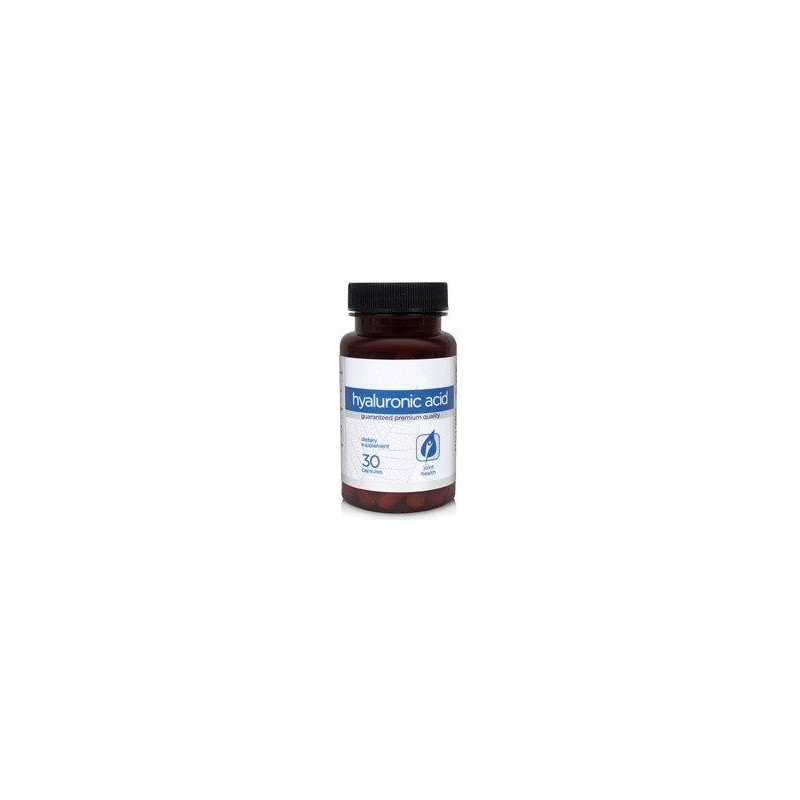Hyaluronic Acid
The hyaluronic acid is being experimentally used to fix a wide range of problems found in connective tissue disorders, such as fractures, Visual disorders, inadequate healing of wounds and prematurely wrinkled skin. It would be highly logical to consider the possibility of hyaluronic acid work to correct these problems, because they are defects or shortcomings of hyaluronic acid are causing these problems in the first
What is hyaluronic acid?
Hyaluronic acid is a sulfated not distributed widely glocosaminoglicano by all neural tissue epithelial and connective tissues. Is a major component of the extracellular matrix, contributes greatly to the proliferation and migration of cells, and may also be involved in the progression of some malignant tumors. An average man with 15 grams of 70 kg has hyaluronate inbody, and a third change (degraded and synthesised) daily.
Hyaluronic acid has been dubbed the "key to the fountain of youth" because it has been observed that at least some people who consume too much of this in their diets tend to live longer. Hyaluronic acid can be an anti-aging remedy?
Scientists have focused recently on the possible anti-aging benefits of hyaluronic acid, also known as Hyaluron or HA. In a story titled, "the village of long life: hyaluronic acid can be an anti-aging remedy?", the focus was on a village in Japan called Yuzuri Hara where peopleusually live a long time and often have a perfect skin with 80 or even 90 years. More than 10% of the population of viça it has 85 years or more, and this is about ten times more than the average.
Some studies suggest that the reason that Hara Yuzuri residents, known as "the life of long life", have long and healthy lives so is mainly due to the fact that the local diet that is unique of life has a starchy vegetable that is particularly rich in HA. In reality a large pharmaceutical company in Japan began research and development with respect to a pill supplement containing HA. When tested the pills in a thousand people, about half reported skin smoother and improved vision. Hyaluronic acid also proved to be effective in arthritic joints and lubrication, some studies showed positive results of injections of hyaluronic acid in the joints, a component of the lubricating fluid of the body, which can delay the need for joint replacement.
style = "color: # 333333; font-family: ' lucida grande ', tahoma, verdana, arial, sans-serif; font-size: 13px; line-height: 18px; "/>
As hyaluronic acid work?
Hyaluronic acid is abundant in our bodies when we are born, but the levels reduce gradually over time. This reduction in levels of HA can be a big part of the aging process we observe. Hyaluronic acid occurs in the deepest layers of our skin known as the dermis, and seems to help keep the skin smooth due to its water retention qualities. Hyaluronic acid apparently also helps repair skin wounds and some other problems.
Hyaluronic acid is cushion and lubricate. Hyaluronate occurs throughout the body in abundant amounts in many places where people with hereditary connective tissue disorders have problems like heart valves, joints, and eyes. Hyaluronic acid abnormalities are a common point in connective tissue disorders. Interestingly, biochemical anomalies are also common in most individual resources in connective tissue disorders such as mitral valve prolapse, TMJ, osteoarthritis, and Keratoconus.
Why take Hyaluronic Acid?
Hyaluronic acid seems to help keep the levels of collagen. Under normal circumstances, the depletion of collagen is widely regarded as a major factor in skin tone below average, as well as skin elasticity, something that is often associated with the aging process.
Hyaluronic acid makes up approximately 80% of the human eye, a fact that is surprising to some people. Is a type of shock absorber for the retina, which helps prevent traumas visuals. It was only recently that the hyaluronic acid was found to be effective in oral form, although it has been used for a long time in joint injections.




